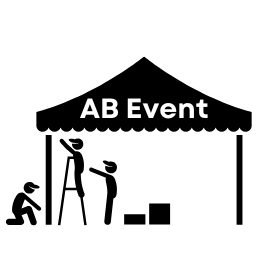Top 10 tips for organizing a successful corporate event
Before diving into the logistics, it's crucial to clearly define the purpose and objectives of your corporate event. Are you aiming to launch a new product, celebrate a company milestone, or foster team building? Understanding the goals will guide every decision you make, from venue selection to agenda planning.
2. Establish a Budget
Creating a comprehensive budget is essential for a successful event. Consider all potential expenses, including venue rental, catering, entertainment, and marketing. Allocate funds based on priority and ensure there's a contingency for unexpected costs. A well-planned budget helps prevent overspending and ensures all aspects of the event are covered.
3. Choose the Right Venue
The venue sets the tone for your event. Consider factors such as location, capacity, amenities, and accessibility. Ensure the venue aligns with your event's theme and can accommodate your technical and logistical needs. Booking the right venue early can save you from last-minute hassles.
4. Develop a Detailed Timeline
A detailed timeline is crucial for keeping your event on track. Outline key milestones and deadlines, from initial planning stages to post-event follow-ups. Assign responsibilities to team members and use project management tools to monitor progress. A well-structured timeline ensures nothing is overlooked.
5. Select a Theme and Design
A well-chosen theme can enhance the overall experience of your event. Consider your audience and objectives when selecting a theme. Once decided, ensure all elements, from invitations to decor, align with this theme. Consistency in design creates a memorable and engaging atmosphere.
6. Plan the Agenda and Activities
Craft an agenda that balances informative sessions with interactive activities. Consider including keynote speakers, panel discussions, and networking opportunities. Tailor the content to your audience's interests and ensure there's a logical flow to the day's events. Engaging activities keep attendees interested and involved.
7. Coordinate Catering and Refreshments
Food and beverages are a significant part of any event. Choose a catering service that offers quality and variety, accommodating dietary restrictions and preferences. Consider the timing of meals and breaks to keep energy levels high. A well-fed audience is a happy audience.
8. Manage Invitations and RSVPs
Effective invitation management is key to ensuring a good turnout. Use digital platforms to send invitations and track RSVPs. Follow up with reminders as the event date approaches. Personalize communications to make attendees feel valued and informed.
9. Prepare for Technical Requirements
Technical issues can disrupt even the best-planned events. Ensure all audio-visual equipment is tested and functioning. Have technical support on standby to address any issues promptly. Consider the need for Wi-Fi, projectors, and microphones, and ensure the venue can accommodate these requirements.
10. Evaluate and Gather Feedback
Post-event evaluation is crucial for continuous improvement. Gather feedback from attendees, sponsors, and team members. Analyze what worked well and identify areas for improvement. Use this information to refine your approach for future events, ensuring each one is better than the last.






Comments (0)